Since the beginning of this year, benefiting from the surge in storage demand brought about by the AI and big data era, along with effective inventory reduction in downstream sectors, the storage industry has spearheaded a recovery that has led the semiconductor market into a new cyclical turning point. During this crucial period of industrial transformation, “breaking through for a win-win outcome” has become a shared objective.
Recently, the third GMIF2024 Innovation Summit was officially held in Shenzhen. With the theme “AI Leads Memory’s New Momentum”, GMIF2024 stood as a spotlighted storage gala that convened upstream and downstream enterprises in the semiconductor industry. Participants shared brilliant insights from their respective positions and perspectives on critical topics such as global memory technology innovation, process innovation, product innovation, application innovation, and ecosystem development, to explore paths to industrial innovation and mark a grand industry feast that connected the entire ecosystem.
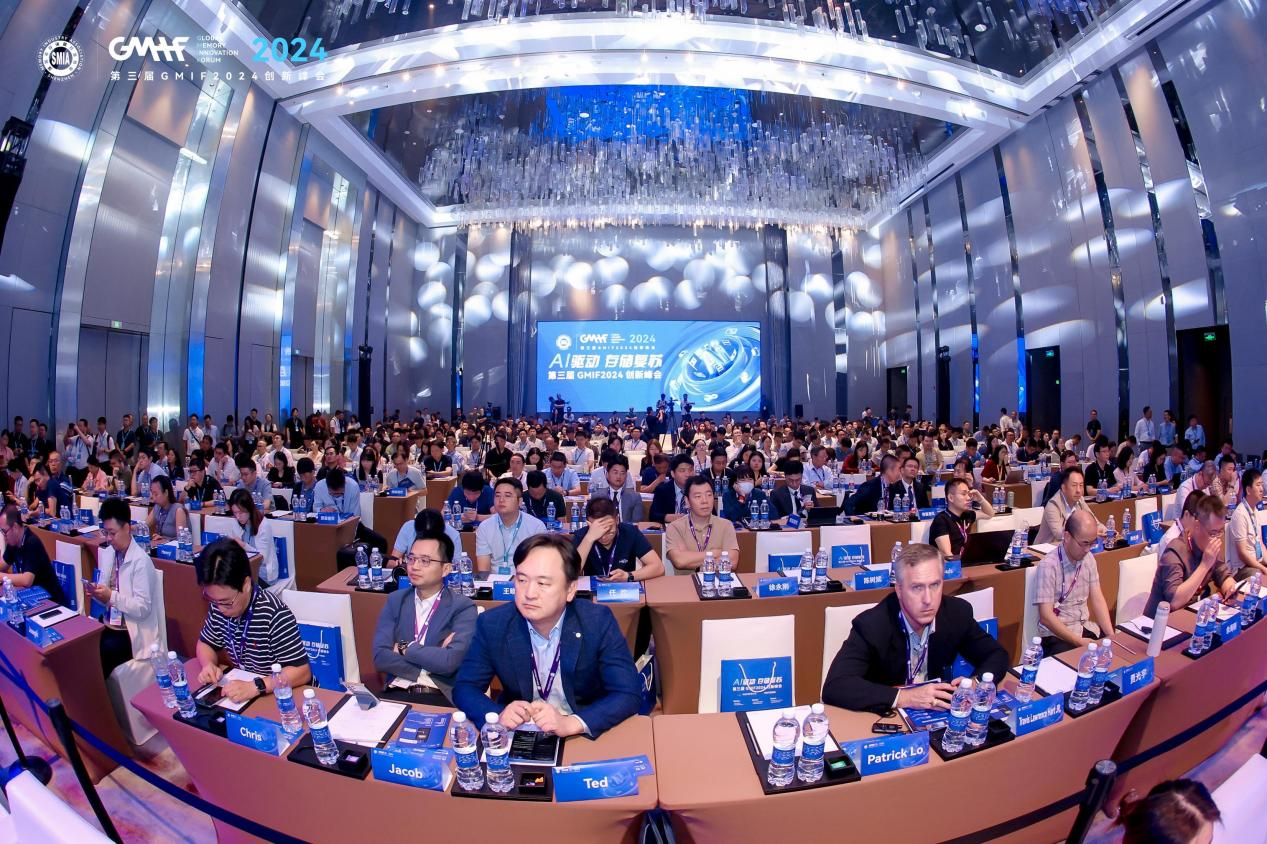
The GMIF2024 event also included a dedicated area for exhibitions and displays, where more than 30 exhibitors offered an all-encompassing display of over 200 exhibits, fully portraying the latest front-end innovations and state-of-the-art achievements. At the summit, the GMIF2024 Annual Awards were simultaneously announced, with a total of 38 enterprises making the list. Besides, an exclusive session, specifically the Global Live Broadcast of Memory Trends by Brands, brought a bright spot to the event, and was also acknowledged as a channel for sharing innovative storage solutions, cutting-edge technologies, and various typical innovation cases in application.
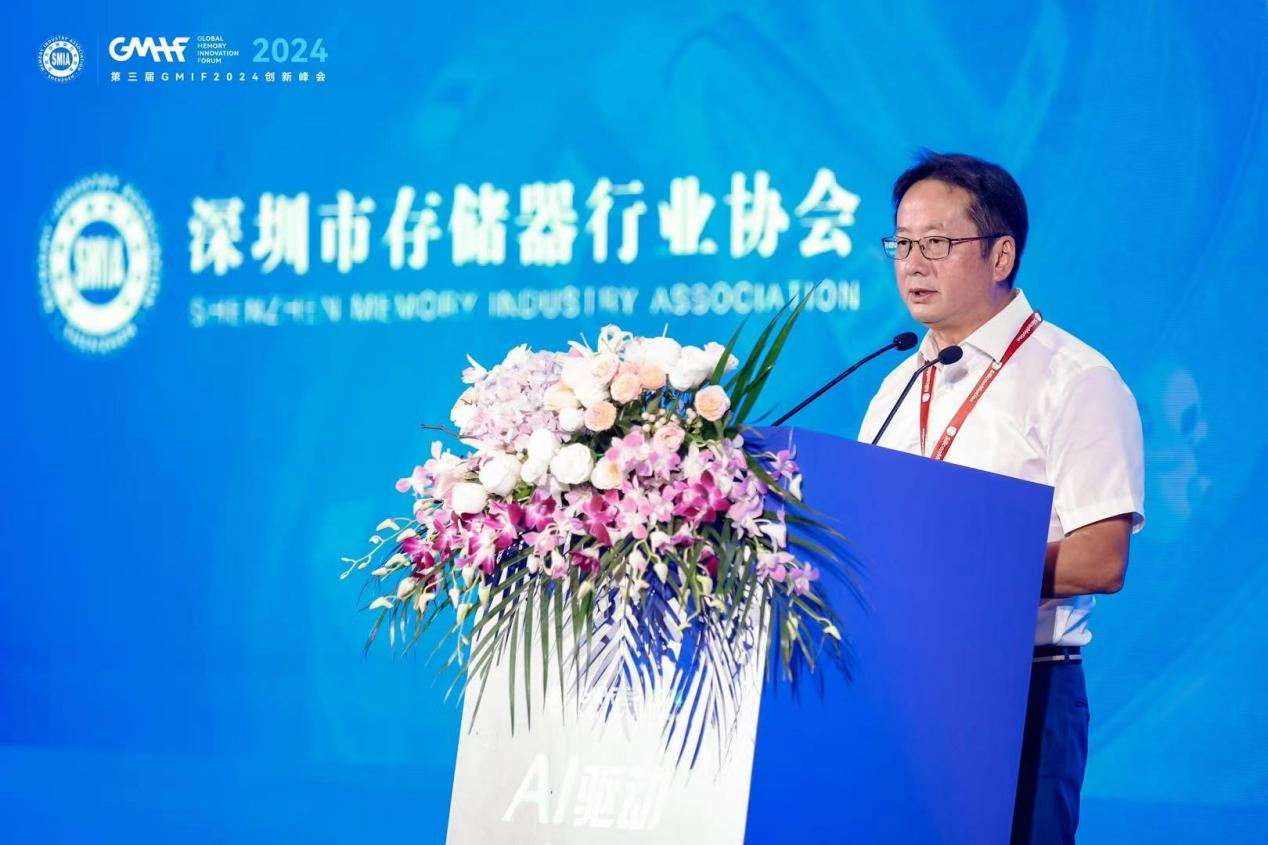
The summit was officially commenced with the opening remarks from Rixin Sun, Chairman of the Shenzhen Memory Industry Association (SMIA). Mr. Sun said that with expeditious advancement in technologies such as AI, 5G, Big Data, and Internet, the global storage industry is embarking on a brand-new phase of transformation. Rather than focusing solely on the storage or memory itself, the GMIF Innovation Summit aims to connect the whole value chain across the upstream and downstream storage companies, covering key areas such as storage media, solutions, system platforms, and testing equipment. SMIA, as the organizer of the summit, regards “focusing storage domain, enhancing industry collaboration” as the core area of work, dedicated to establishing a fundamental industrial cooperation platform for member enterprises and constructing a favorable ecosystem for the storage industry. It’s believed that only through collaboration across the entire industry chain can continuous progress be promoted and leadership be maintained in the global marketplace.
Dialogue with AI Storage, Innovate for Win-Win
Over the recent years, the rise of AI large models has driven AI-related terminal applications to be the pillar supporting the storage upward cycle. At the moment, the ongoing rise in storage capacity demands for AI phones, AI PCs, and even automotive terminals is fueling the rapid development of the storage market.
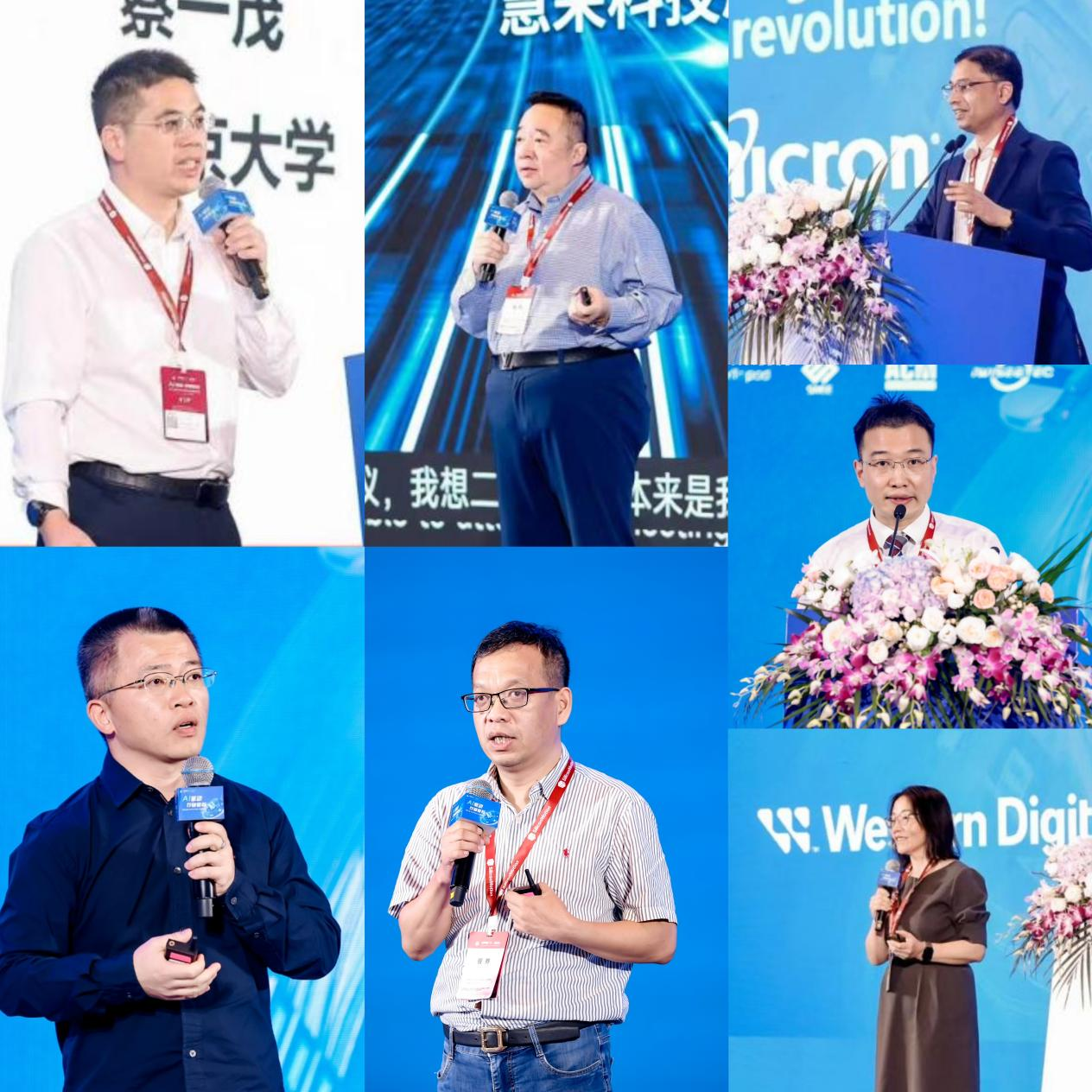
Prasad Alluri, VP and GM for Client Storage, SBU from Micron Technology, joined the summit and stated that “phone manufacturers have increased LPDDR5 memory capacity to between 12GB and 16GB by incorporating AI functions in high-end phones to accommodate growing datasets. Additionally, storage technology has iterated to UFS 4.0, with power efficiency more than doubled compared to the previous generation. In terms of edge devices, AI will elevate autonomous driving from Level 0 to Level 5, and it’s expected that the bit density required by automotive memory will increase approximately 30 times, and non-collision bits in power supplies will enhance nearly 100 times.”
Haibing Xie, Director of Application Design in Center, Intel China, expressed that AI PC is the best carrier for edge AI and will lead the next explosion in the PC industry. As of now, Intel has shipped 20 million AI PC chips, expected to reach 40 million by year-end, and projected to ship 100 million in 2024-2025.
In light of the current memory market, Xiaofei Zhang, Chief Analyst for Electronics Industry from Haitong Securities, mentioned in his report “AI: Storage Trends Outlook and Application Driving” that HBM3e has an impact on the production timelines of DDR5, and the decline in DRAM prices is limited; regarding NAND, inventory adjustment at server terminals is entering its final stage, and coupled with increasing demand for large-capacity storage products propelled by AI, Q2 has seen an on-going price increase. Although recent NAND price increases have slowed down, its prospect still exceeds market concerns. In the future, the penetration of AI terminal applications will accelerate, and the demand for computing storage will continue to rise.
Wallace C. Kou, President & CEO of Silicon Motion, shared a similar view and commented that while AI servers and data centers are flourishing in 2024, other consumer electronics products face various challenges due to weak demand. However, there’s no need for excessive concern about recent soft demand, as the long-term storage market outlook remains broad with many new growth opportunities.
The storage industry faces both opportunities and higher challenges in the AI era. According to Yimao Cai, Dean of the School of Integrated Circuits at Peking University, significant hurdles have been presented for storage technology after entering the post-Moore and AI era. On one hand, traditional memory faces serious constraints in integration density and reliability below 28nm, which urgently requires breakthroughs in underlying technology. On the other hand, the rapid growth in AI computational demand is straining traditional computing chips due to their high overhead and energy consumption, incapable of meeting the high-efficiency requirements of smart devices. Therefore, breakthroughs in underlying units and process integration are core to memory technology advancement, and new storage technology forms are becoming increasingly mature, expected to further promote the development of In-Memory Computing (IMC) chips.
Yan Li, Vice President of Advanced Technology at Western Digital, pointed out that 3D NAND flash is a competitive, constantly progressing market. The number of NAND cells stacked has experienced substantial growth, yet continuously increasing layers might not be a good strategy as it could cause cost-effectiveness imbalance and lead to a vicious cycle. Instead, overcoming 3D NAND scaling limitations through innovative technologies can also improve storage density and performance.
Benny Ni, GAR Sales VP at Solidigm, stated that AI is increasingly highlighting the limitations of mechanical hard drives, and Solidigm-launched QLC SSD is capable of breaking through HDD limitations in AI applications, which significantly improves power efficiency of AI storage and contributes to perfecting the ecosystem.
Zhinong Liu, Executive Vice President of UNISOC, signified that in the all-scenario AI computing system, software serves as the “engine”, chips as the “foundation”, the ecosystem as the “bond”, and products as the “carrier”. UNISOC will continue to strengthen its advanced semiconductor manufacturing platform based on strategy and capability centers, maintain supply chain security, ensure efficient and stable product delivery, and enhance customer satisfaction.
Rui Ding, General Manager, Product Department, Consumer Cloud Platform Business Group at iFLYTEK, declared that the development of large models has transitioned AI from a “tool” to an “assistant”, capable of doing more generalized tasks through more natural conversational forms. However, its ultimate form will be a “partner” that can perceive emotional changes and provide sufficient emotional value. In the future, iFLYTEK hopes to collaborate with various industry stakeholders to promote the development of AI technology.
Embracing Trends, Building for the Future
Facing the massive market opportunities brought by the AI era, major manufacturers are scaling up efforts to strengthen their industry chain layout. Sam Sun, Chairman of BIWIN Storage, voiced that BIWIN is intensifying endeavors in the layout of its Integrated R&D and Packaging 2.0 strategy, and strengthening commitment to investment in storage solutions, chip design, packaging and testing, and equipment R&D. This integrated strategy not only involves a keen focus on the R&D and packaging and testing of mainstream storage and memory, but shifts attention to more far-reaching development opportunities in high-end advanced packaging and testing technology. This transition is poised to elevate BIWIN from a storage product supplier to a comprehensive partner offering advanced wafer-level packaging and testing services, so as to deliver innovative, high-quality solutions to industry partners and promote a comprehensive enhancement in customer value. Guided by the vision of ‘BIWIN, WIN-WIN’, BIWIN Storage, rooted in China yet with a global perspective, strives to achieve technological innovation and commercial success in collaboration with clients through its dual-drive strategy of storage solutions and advanced packaging and testing.
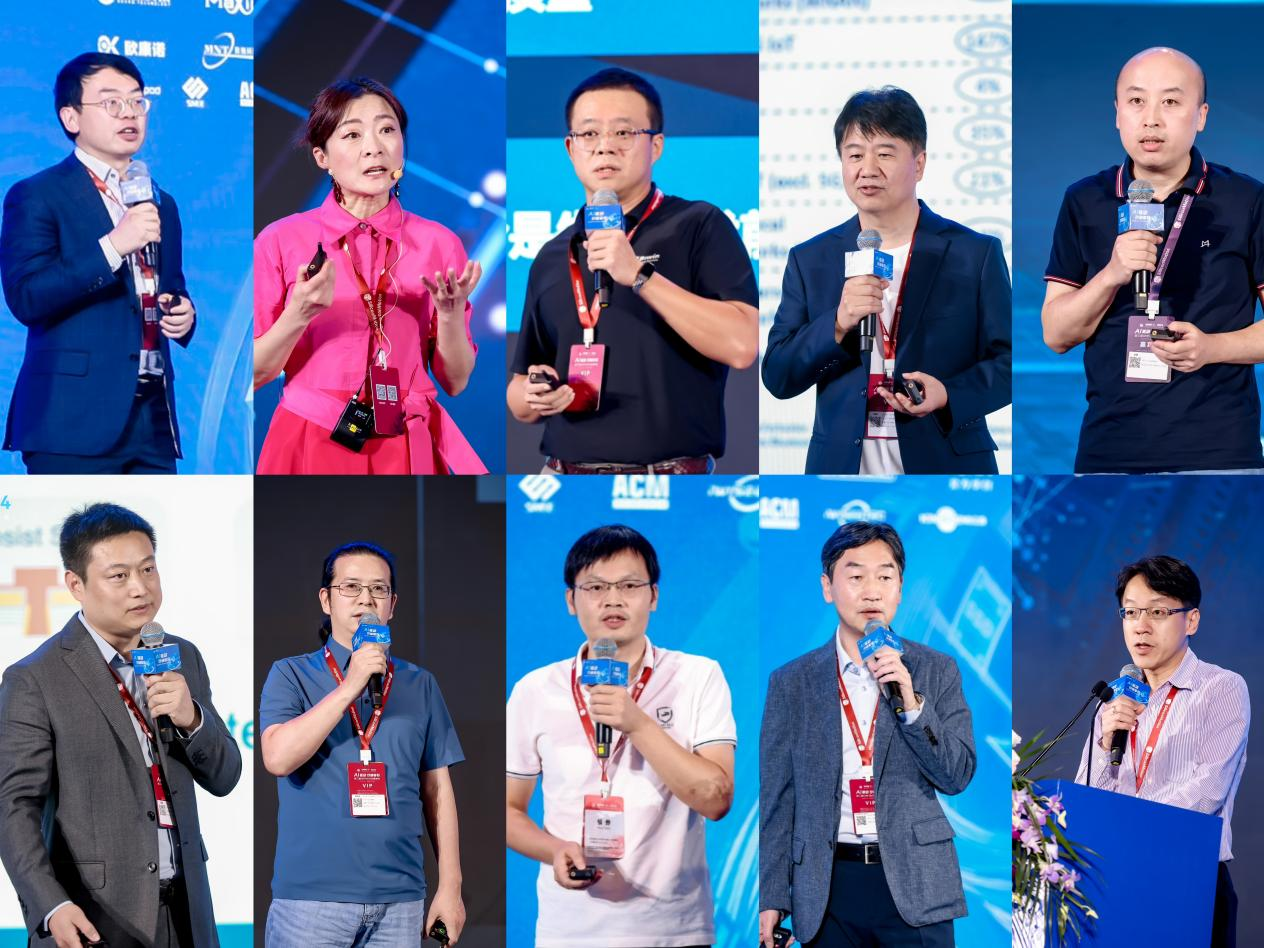
Haiqing Huang, R&D Vice General Manager at Victory Giant Technology, shared his insights that VGT is accelerating its R&D investments of PCB products to adapt to current high-performance computing, data centers, AI training and inference, and other application scenarios. Up to date, the fifth-generation high-performance memory (DDR5) is in mass production, and sixth (DDR6) and seventh generation (DDR7) products are under development.
Chloe Ma, VP of China GTM for IoT Line of Business at Arm, remarked that the AI industry will usher in its “highlight” moment, and storage plays a key role in AI computing from cloud to edge. Arm is carrying various emerging AI applications and workloads from cloud to edge. In response to the innovative demands of edge AI in the new era, Arm is committed to advancing in three major areas: hardware, software, and ecosystem development.
At present, AIoT has become the best channel for intelligent upgrade of traditional industries and also a critical direction for future IoT development. Feng Chen, Senior Vice President of Rockchip, indicated that the AIoT market has seen rapid expansion, which brings more opportunities for AIoT chips; but meanwhile, challenges are also presented for the enhancement of chip computing power as more massive data transmission and storage computing demands are required. Rockchip continues to launch chips to support AIoT applications.
Vic Huang, Vice General Manager of QUANXING Technology, explained that high hardware costs are draining the vitality of the AI industry, and low-cost hardware solutions are in urgent needs. The computing architecture of Quanxing’s solutions is not limited by large model size and able to significantly reduce local deployment costs. Moreover, Allwinner Technology concentrates efforts on enhancing general computing power, specialized computing power, computing power expansion, and multi-modal perception; Montage Technology establishes a complete layout in high-performance “transmission” chips, which is expected to become a new growth point for the company.
The evolving development of storage industry has illuminated the importance of packaging and testing technologies, especially as advanced packaging is moving toward miniaturization and integration and rising technical barriers are surfacing. International equipment manufacturers such as AMAT, LAM Research, and DISCO make pushes to provide innovative functionalities of their equipment products, in order to improve the “hard strength” of their products and stand out in the market.
Advance Industry, Cultivate a Flourishing Ecosystem
China has grown into an important global consumption market for memory chips with growing demand from consumer electronics, big data, AIoT, automotive electronics, and other terminal markets. Meanwhile, the storage industry chain in China is under refinement and development, able to further connect wafer manufacturers, controller manufacturers, packaging and testing manufacturers, equipment manufacturers, SoC platform manufacturers, module manufacturers, and terminal manufacturers. This has created one of the most dynamic memory industry clusters in the world and made joint efforts to build an active industrial ecosystem.
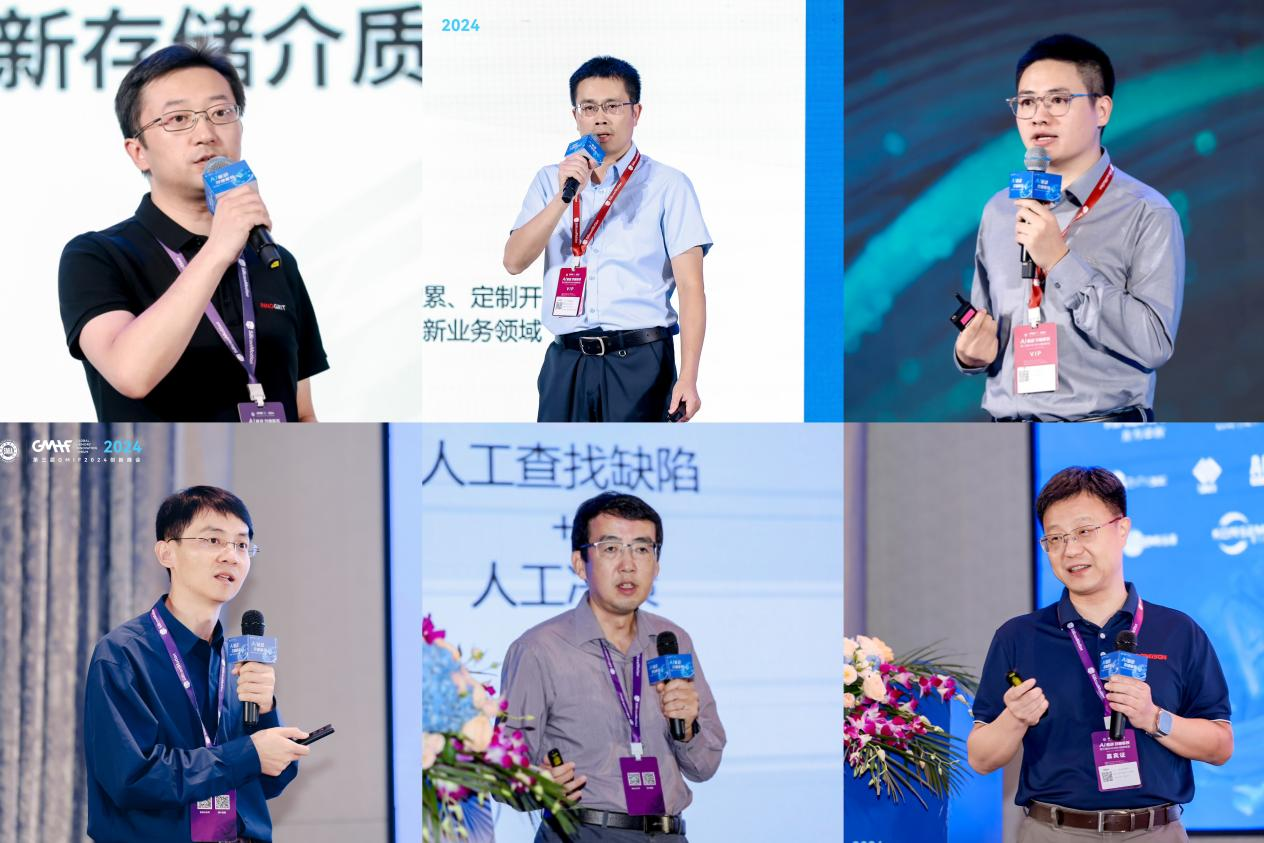
Shan Jiang, General Manager of Guangdong Loongson Electronic Technology, affirmed that Loongson has gained more innovative space for the industry and market through self-reliance and independence. Autonomy has granted Loongson greater freedom, enhanced cost-effectiveness, and a more secure supply chain. Committed to becoming both a contributor and a maintainer of the international upstream community, Loongson aims to achieve independence and compatibility on the global stage at the same time, rather than decoupling or breaking the chain.
Ming Zhao, General Manager of OKN Technology, observed that “Nowadays, market competition is fierce. For OKN, it’s about competing with ourselves, which means to continuously improve technical capabilities and product coverage, and empower high-quality development of the storage industry through testing technology.” Aaron Xu, CTO of Tytantest, highlighted that “Through our efforts on forward R&D, domestic manufacturing of complete machines, and validation on self-owned production lines, Tytantest strives to develop comprehensive solutions that better meet customer needs.”
Leo Cao, Senior Sales Director at Silergy, said that in the storage industry chain, the company possesses several advantages, including highly efficient product integration, extensive experience collaborating with top-tier clients, a wide range of product coverage, supply chain security, and global collaborative research and development. Silergy has achieved a global layout in R&D and service, and stays true to its mission to prioritize customer needs.
In the field of controller design, domestic manufacturers have also achieved significant success. Huan Ren, Marketing Director at Maxio Technology, confirmed that domestic storage controllers are still in the initial stage, expected to account for nearly 20% of global share this year and potentially rise to 30% by 2027. Jie Chen, Co-founder and VP of Data Storage Technology at InnoGrit, claimed that the data age has posed higher challenges to storage technologies. Faster and more efficient SSD interfaces will help to break through storage limitations. The collaborative optimization of InnoGrit’s memory controllers with domestically produced flash memory will enhance the read/write performance and QOS competitiveness of storage products, jointly shaping the future of China’s storage industry.
Equipment manufacturers are also aligning with market demands by launching a steady stream of innovative products. Song Zhang, Executive Vice President of Skyverse, emphasized that, “In practical applications, it can be noted that system inspection has demonstrated better results in efficiency and accuracy than manual inspection, which aids to significantly improve production efficiency for the clients. Skyverse will remain dedicated to driving innovation in AI products to provide high-quality solutions for domestic customers in the future.”
Xiaolong Ouyang, R&D VP at Attach Point Intelligent Equipment (APIE), proclaimed that APIE has launched a one-stop solution for die bonders, and the packaging process range of storage chips covered expands from 60% to 90%. This endeavor contributes to achieving high-efficient resource utilization, creating higher value for customers, and supporting flexible manufacturing of storage chips in the AI era.
Kent Wang, Business Development Manager at Heyan Technology, introduced that the company has experienced three development stages: the basic products of 6-inch dicing machines, upgraded products of 8-inch/12-inch dicing machines, and high-end products such as cutting and sorting machines and de-bonding machines. Heyan is capable of providing reliable and stable consistency assurance for customers, supporting customized solutions for different processes, and offering process-related technological innovations to meet advanced packaging demands.
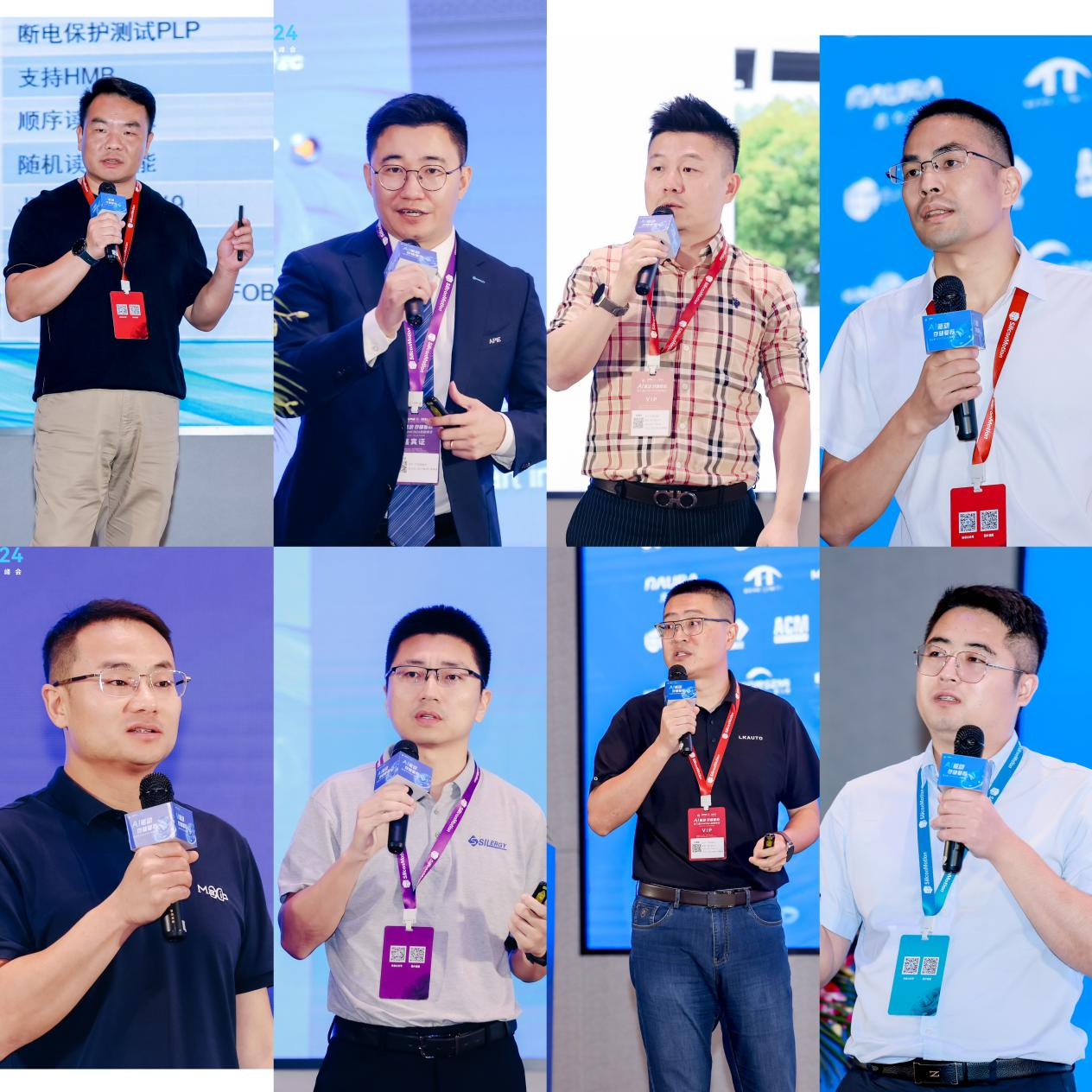
Simon Ye, General Manager of Like Automation Equipment, noted that LKAUTO has mastered the capability for ball mounting on large-sized packaging, supporting applications with packaging sizes up to 120 mm × 120 mm, packaging warpage up to 700μm, and solder ball diameters of 250μm/pitch of 400μm for I/O nodes. The latest generation of innovative technology products is already being used in product development validation with domestic clients.
Steve Pei, CEO of Micro-Nano (Hong Kong) Technology, clarified that Germany SENTRONICS is now a main provider of the SemDex M1 semi-automatic system and the SemDex A fully automatic system, with related products having global installations exceeding 1,000 units, helping improve yield in HBM and advanced packaging fields.
Maxwell today has developed two major solutions: one focuses on semiconductor grinding and dicing equipment + process + materials, and the other on 2.5D/3D advanced packaging equipment. Kuilin Jin, Vice General Manager of Sales at Maxwell Technologies, added that “our ultimate goal is to break international monopolies, forge domestic competitive barriers, provide customers with complete solutions, and grow together with customers”.
Showcase Results, Foster Collaboration
In addition to impressive keynote speeches, the GMIF2024 Innovation Summit also promoted exchange and cooperation among industry ecosystem partners through product exhibitions, global live broadcast of memory trends by brands, and golf friendship tournaments. These activities aim to accelerate the innovation, research, development, and promotion of relevant technologies and products, driving the diversified development of the semiconductor memory ecosystem.
The summit venue set up over 30 exhibition booths to provide a platform for exhibitors to demonstrate achievements and exchange cooperation. The exhibited products encompass the entire industry chain, including memory chips, controllers, packaging and testing, equipment, SoC platforms, and more. Participating enterprises included both leading memory industry companies and unicorns, startups, etc. Through displays, videos, and on-site interactions, the summit presented a multi-faceted and comprehensive view of the achievements, cutting-edge technologies, and industry trends in the storage sector.
The exhibition stands not only as an opportunity for participants to gain direct insights into the current state of storage industry development, but also a stage for enterprises to showcase their achievements and engage in collaborative discussions, receiving widespread praise and enthusiastic response from the industry.
To recognize and encourage outstanding enterprises that have made contributions to promoting innovation and development of the global memory industry chain, the winners of GMIF2024 Annual Awards were unveiled at the summit. After fierce competition, nearly 40 companies, including Intel, Micron, CXMT, YMTC, GigaDevice, Arm, UNISOC, SIXUNITED, Victory Giant, BIWIN Storage, Solidigm, Western Digital, Rockchip, Allwinner Technology, Weibu Information, Heyan Technology, OKN Technology, Attach Point Intelligent Equipment, iWISEETEC, Tytantest, Hemei Jingyi, Silicon Motion, Maxio, QUANXING, MICROFROM, Konsemi, Silergy, Tongfang, LKAUTO, Maxwell, Skyverse, RORZE, ExTripod Electronics, EPS, InnoGrit, POWEV, KingSpec, LANYI and more, had been honored with the 2024 Annual Awards.
After the awards ceremony, the organizers carefully arranged one more relaxing section of “Bay Area Night”, which not only provided participants with opportunities to relax and enjoy cuisines but also became a warm moment for everyone to further deepen friendships and share feelings.
Furthermore, GMIF2024 featured a unique section of Global Live Broadcast of Memory Trends by Brands, where storage brands such as BIWIN Storage, Silicon Motion, Victory Giant, Montage, QUANXING, InnoGrit, POWEV, and KingSpec shed lights on their innovative storage solutions, forefront technologies, and various typical innovation examples in mobile intelligent terminals, data centers, intelligent vehicles, Internet of Things, and other fields.
The golf friendship tournament, as the “finale” of this GMIF2024 Innovation Summit, played the part of an important platform for building friendships through sports and fostering connections through competition. Taking golf as a medium and competition as a bond, GMIF dedicated itself to building communication bridges between enterprises, facilitating extensive cooperation among storage manufacturers across the industry chain and collectively seeking prosperous development of the storage ecosystem.
Conclusion
As one of the largest sub-markets in the semiconductor industry, the memory market has shown signs of recovery in the fourth quarter of 2023 after nearly two years of sluggishness, and continued its upward trend into the first half of 2024. This resurgence is largely driven by advancements in AI technology.
Currently, market demands for AI phones, AI PCs, AI servers, and other applications are growing rapidly. According to IDC predictions, by the end of 2024, generative AI smartphones will achieve explosive growth of 344%, with shipments exceeding 234 million units. According to Canalys, AI PC shipments will reach 44 million units in 2024 and potentially reach 103 million units in 2025. This explosive growth in innovative applications is driving the rapid development of advanced memory technologies while also placing increasingly high demands on high-capacity, high-speed storage solutions.
From the perspective of storage enterprises, it’s only by collaborative cooperation across the entire industry chain grounded on the enhancement of product technology iteration and updates that can the companies better embrace the development opportunities catalyzed by AI. GMIF is more than a congregation of industry elites; it is a lively arena for the clash of thoughts and the synthesis of wisdom. GMIF commits itself to inspire companies along the memory industry chain to embark on a transformative journey filled with challenges and opportunities through deep collaboration and co-creation as they strive for a more brilliant future.
